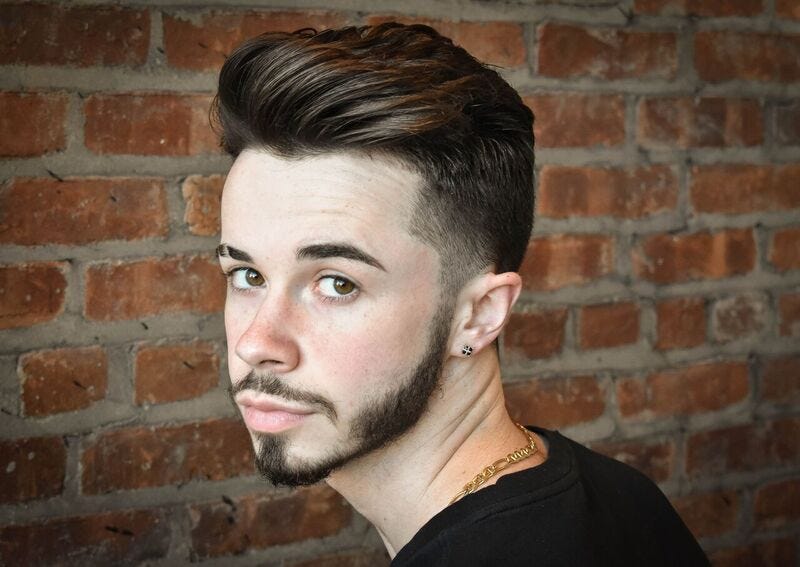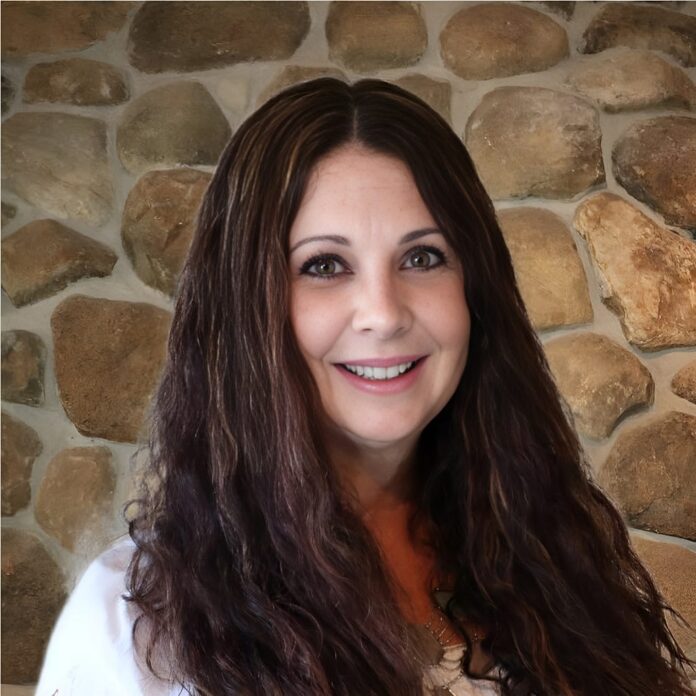Audacious Impact: Donna Thomas of James’s Warriors On Leading An Audacious, Visionary, Impact-Focused Program
An Interview With Russ McLeod
Teaching people the signs and symptoms, that it is okay to talk about what they feel and how to cope with those feelings, we hope will spark a broader conversation around mental health, reduce the stigma surrounding it, and save lives.
In an era where social and environmental challenges are increasingly pressing, certain organizations stand out for their bold and innovative approaches to creating meaningful impact. These trailblazing organizations are not just meeting the status quo but are setting new standards for what can be achieved through dedicated, impact-focused programs. What does it take to pioneer such transformative initiatives, and what can others learn from their successes? I had the pleasure of interviewing Donna Thomas.
Donna Thomas is the founder of James’s Warr;ors, a not-for-profit that provides resources for families who have been affected by suicide and raises public awareness and education to bring change to the way mental health is perceived by reducing the stigma around it and preventing suicide. Donna dedicates her time to speaking to students and student groups, sharing her family’s story, in hopes of recognizing the signs of mental illness and the importance of speaking up. James’s Warr;ors was founded after the death of Donna’s son, James, by suicide. The Thomas family lived in Wappinger, New York. James was a graduate of Roy C. Ketcham High School and Paul Mitchell The School in Schenectady. Donna and her husband and daughter, currently reside in the Saratoga Springs, New York area.
Thank you so much for doing this with us! What inspired you to start your organization, and what is its core mission?
James’s Warr;ors was built on love, in memory of my son, James Thomas, who died by suicide in 2018 when he was just 19 years old. What people are surprised to learn about, is that we had no idea that James was suffering from mental illness. If you ask anyone who knew James, they would say he was the funniest person you would ever meet, and he was one of those people that you would want to hang out with at a party. James struggled in silence, and we don’t want anyone else to struggle in the same way and don’t want any more families to have to go through what we went through.
The mission of James’s Warr;ors is to provide a resource to those affected by suicide through public awareness and education.
Could you tell us about your journey in the industry and any significant experiences that have shaped your approach to impact-focused programs?
After James’s death, I had so many people come up to me and share their own stories about how they are struggling themselves, and they are struggling in secrecy. For us to change anything, we need to be able to communicate, use the appropriate words, and speak about what people feel. One thing we’ve learned from speaking to students, friends, and family is that mental illness does not discriminate — it happens to people from all different areas, states, backgrounds, and more, and too many people are afraid to talk about their mental health, they suffer in secret.

Can you describe your company’s mission? Does your organization solve societal problems? If so, tell us how. What customer problems are you solving?
Our mission teaches kids how to communicate to the adults in their lives about how they are feeling.
If they feel like they might not be able to talk to their parents, there are other adults, like teachers, counselors, and aids, who they can talk to. Or maybe they don’t want to talk at all, but there are other ways to cope with these feelings by using the 5 senses.
Teaching people the signs and symptoms, that it is okay to talk about what they feel and how to cope with those feelings, we hope will spark a broader conversation around mental health, reduce the stigma surrounding it, and save lives.
There are so many factors that go into having a mental illness and suicide — hereditary, environmental, deficits of hormones, and more. We’re all going through so much in this world, and we all are doing the best we can. We want to teach is to be kind and listen.
Do you have a big hairy audacious goal for your organization and its impact on the planet?
The ultimate goal of James’s Warr;ors is to stop the stigma that talking about your mental health is a bad thing. We want to end the idea that young people have that talking about what they might be feeling might make their friends make fun of them, or have students not seem “perfect” on social media and how to handle that pressure. By having and encouraging open and honest conversations, we can challenge the harmful stereotypes and misconceptions that persist around mental illness that often lead to suicide, and end the epidemic, together.
Can you describe one of the most audacious impact-focused programs your organization has pioneered? What was the inspiration behind it?
Fostering open and honest conversations is what inspires and drives James’s Warr;ors’ programs.
We travel and speak at schools, colleges, youth groups, and other community programs. I share James’s story to students, parents, teachers, caregivers, and more about the importance of recognizing mental health illness and speaking up and reaching out if you need help. I share James’s story as a powerful way to humanize the issue and show others that they are not alone. It’s also a way to challenge the harmful stereotypes and misconceptions that persist around mental illness and suicide. We teach people ways to cope with what they are dealing with and show that they can be okay. Every time you have a negative thought, do something to change that thought, get up and walk around, draw a picture, light a candle, take the dog for a walk, or call or text a friend.
And even if they have a mental health issue, it is still possible to have a good life!
What were the biggest challenges you faced while developing and implementing this program, and how did you overcome them?
One of the biggest challenges I faced, was overcoming my own mental health challenges in order to stand in front of individuals and tell James’s story — who else is affected more by suicide, than mothers who lose their children? I had to change my whole way of thinking, I learned how to meditate, to journal, to talk about my feelings, and I let go of friends who couldn’t support me — I’m different now, I’ve changed and I will never be the same again.
Understanding how to work through these feelings myself, is a big driving factor of how to offer the same advice to others.
Tell us how your program has been received by customers. What struggles have you had generating customer interest? Please share what successes you’ve had with customers.
People are afraid to talk about mental health and suicide. With James’s Warr;ors, no conversation or topic is off the table. Parents are sometimes worried that by talking about suicide, ideas are being put in their kids’ heads.
But, you would be surprised, students want the presentations and the opportunity to learn and talk about this issue. People are always looking for information about the topic. Sometimes, after our presentation, I have students waiting in line to talk to me, they just want to give me a hug or talk about their own thoughts and feelings. Some kids say the most intelligent, encouraging, things to me, to help me after sharing my story and even open up themselves, and then we are able to get them the help they need with their families and school counselors, to pause, and correct their negative thoughts
You never know when you’re going to catch someone at the right time when they’re struggling, and hearing that they are not alone.
How do you measure the customer success, business success and impact of your programs? Can you share any specific metrics or outcomes?
The success of James’s Warr;ors programs comes from people speaking out — whether it is someone leaving a presentation and telling their guidance counselor they need help and they do experience suicidal thoughts or someone supporting their friend or family member who might have mental health issues and that if you’re supporting somebody, you need to have support as well.
How do you ensure that your programs are sustainable and scalable over the long term?
Before we speak to students or youth groups, we speak to their parents, guardians, or caregivers, the night before. This ensures that the adults in your life know of the right questions to ask after their young person hears the presentation too. They can ask questions like “do you ever feel like that?” “do you know anyone who feels like that?” and more. The sooner young people learn how to have these open and honest conversations, without being afraid of how they are perceived, they can grow in their own mental stability and teach others too throughout their lives — they can be a catalyst to changing the stigma, bringing about conversations, list resources, and hopefully, change the numbers.
What piece of advice would you give to other organizations looking to pioneer their own impact-focused programs?
Not to give up. Seek help, if you need it. Go into your own inner circle of people you know you can trust and rely on, and see who can pull you up and support you.
If you notice another group or corporation isn’t covering something important that you care about, do it yourself.
How can our readers further follow your work or your company online?
Reach out to us online — Facebook “James’s Warriors”, Instagram @jameswarriors, or visit our website www.jamesswarriors.org
This was great. Thanks for taking time for us to learn more about you and your business. We wish you continued success!
About the Interviewer: Russell McLeod is an experienced business leader, social entrepreneur, and mentor. A champion of profit with purpose, the circular economy and of collaboration for positive progress.
Russell is the founder of Mightyhum a Toronto-based impact enterprise dedicated to supporting growing organizations. And, while it’s not a requirement, the Mightyhum team has a passion for collaborating with purpose-driven businesses. Mightyhum specializes in providing consulting services and turning hairy audacious concepts into achievable ventures & projects. The Mightyhum team work with C-suite executives and leaders, developing new product offerings, effective go-to-market strategies, building for profitability, and streamlining operations. Before Mightyhum, Russell was involved in the world of social enterprise as the Executive Director of ME to WE, one of Canada’s best known and most awarded social enterprises. While at ME to WE, the team demonstrated that being profitable and impactful was indeed possible. During his tenure, ME to WE delivered $20M in cash and in-kind to WE Charity, helping transform the lives of over 1 million people through access to clean water; the lives of 200,000 children with access to education; and 30,000 women-led businesses launched globally.
Russell’ personal mission is to inspire others that there is ‘a better way to do business,’ ‘that through business we can solve some of the world’s problems at the same time.’ You can follow Russell’s work at https://www.linkedin.com/in/russell-mcleod1/ or www.mightyhum.com.
Audacious Impact: Donna Thomas of James’s Warriors On Leading An Audacious, Visionary… was originally published in Authority Magazine on Medium, where people are continuing the conversation by highlighting and responding to this story.


